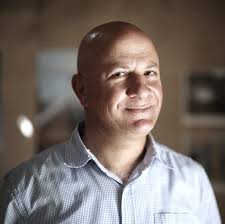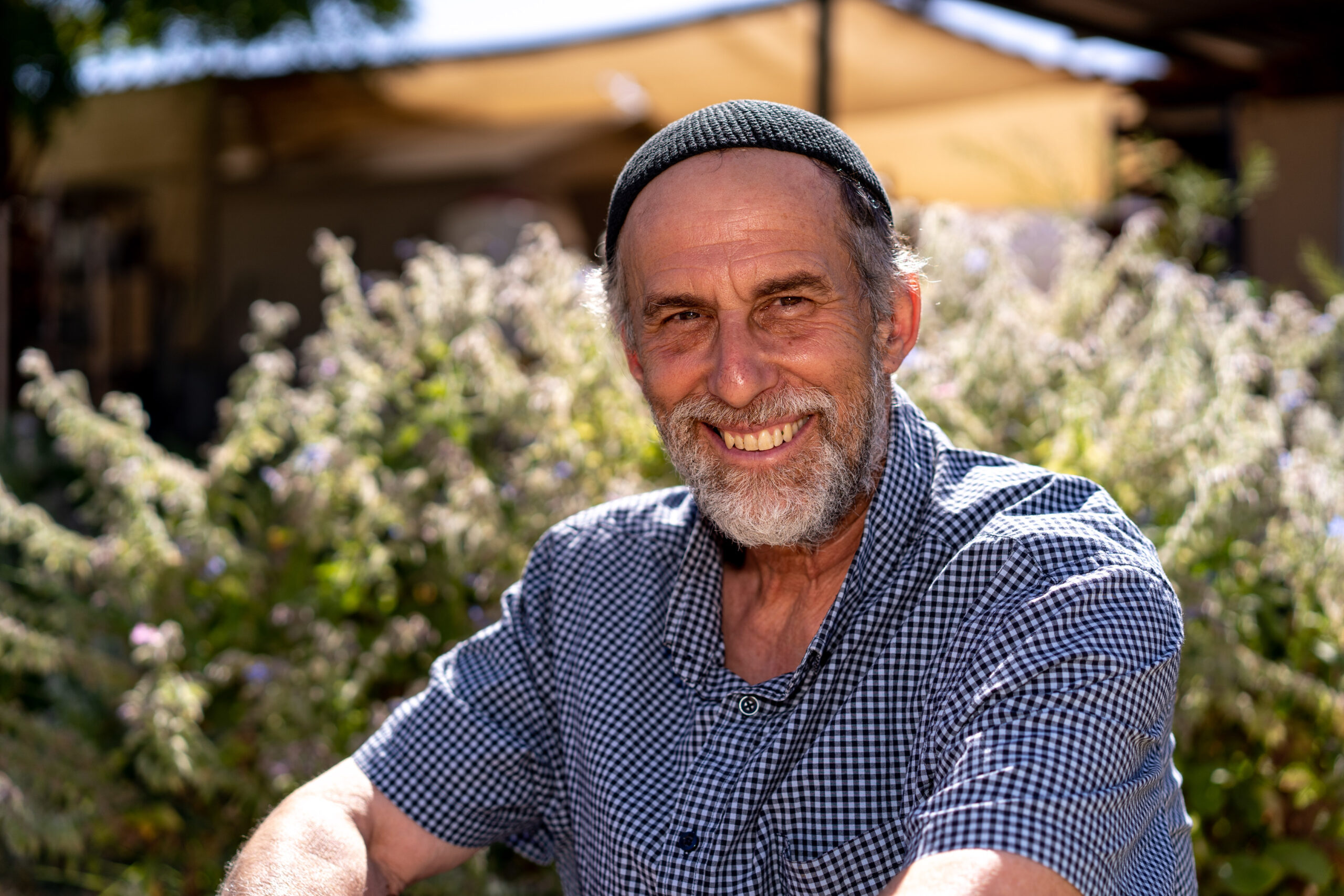During times of conflict, clear lines are drawn with the understanding that those lines should not be crossed, especially during war. What happens once war begins and you find yourself in a community of people with different identities, whose communities are at war with each other?
This has been the reality of our students, interns, faculty and staff at the Arava Institute for Environmental Studies. Since 1996, the Institute has brought together Israelis, Palestinians, Jordanians, Moroccans and other internationals, including North Americans. Over the years, Gazans have participated in our academic program as students, interns and program associates, and they have also come to our campus for workshops and training in off-grid technologies.
Our mission is “to advance cross-border environmental cooperation in the face of political conflict.” Holding cooperation and conflict simultaneously is a perpetual tension; during wartime, it is magnified. Since Oct. 7, the horrific descriptions of the heinous massacre by Hamas, the tragic loss of Palestinian life in the Gaza Strip, and the worry over the fate and conditions of the hostages have been a constant — sometimes at the forefront, sometimes beneath the surface, but always present.
This war creates conditions of extreme emotions, paralleling a similar dynamic within the extremes that epitomize the climate crisis of hot and cold, floods and droughts. The students and alumni of the Arava Institute, caught up in this violent storm, are no different. Some of our Israeli students were called up to serve in the Israel Defense Forces. Students, no matter their identity, have worried for their safety, dovetailing a deep reprehension of what Hamas did in the Gaza border area, as well as a collective distress and concern for the Israeli and non-Israeli hostages, and the thousands of innocent civilians killed, wounded and displaced in Gaza.
Our students hold and live the full range of emotions, sometimes letting those emotions get the best of them, but always returning to a state of caring for each other. The words they exchange can be hard, and they can be soft; they can be compassionate and less sympathetic; they can be accompanied by tears of grief and tears of humor.
The motto of the Arava Institute is “nature knows no borders.” Underlying those words is the profound understanding that divisions, particularly those imposed by human beings — not just on the environment, but also by our national, religious, ethnic labels — can be transcended to create a better world. The students and alumni understand that orientation and work hard to walk that talk even during these days of agony and strife.
The pathos of these past months has included reaching out to Israeli friends on both sides of the Green Line, and Palestinians in the West Bank and Gaza; comforting staff members of the Arava Institute over the loss of loved ones murdered by Hamas; helping with the evacuees who took shelter on Kibbutz Ketura; and working to get our Gazan alumni and our projects partners out of Gaza.
It is very easy to become overwhelmed, and even despondent, by this reality. We have been through dark days before in our work, spanning more than a quarter of a century. As with the phases of the moon, the ever-changing tides and the seasons of the year, we are reminded that the environment, as well as human societies, do not operate in a state of stasis but are in a constant state of change. Within that dynamic adaptation, evolution, if you will, is the key to success. That has been an operating principle of the institute since its doors opened. With that orientation, we have begun to work towards adapting our previously successful work in Gaza to meet the new more acute needs of Gaza at this time.
More than 1.7 million Gazans have been displaced. It will take years before the international donor community’s efforts to rebuild Gaza are completed. In the meantime, overcrowding and the lack of essential water, sanitation and hygiene (WASH), and energy services must be addressed. Without immediate interventions, Gazan refugees face the high risk of food and water insecurity, as well as a public health crisis, including deadly infectious diseases such as cholera.
Damour for Community Development and the Arava Institute for Environmental Studies are leading a coalition of NGOs and private-sector actors to rebuild and revive hope in Gaza. Damour, a Palestinian organization, and other partners in Gaza who address environmental challenges with accessible water and energy solutions have worked alongside the Arava Institute for years. Decentralized (off-grid) water, sanitation and energy technologies can address immediate humanitarian and public health needs while waiting for the reconstruction efforts that will take years to have an impact. The initiative is coordinated with the appropriate, Israeli, Palestinian and international government bodies.
This initiative, which we call “Jumpstarting Hope in Gaza” (JHG), will support the establishment of “Green Refugee Shelters” that will house thousands of internally displaced Gazans. These shelters intend to model environmentally sustainable technologies so that as infrastructure networks systems are rebuilt in Gaza, they are done in a sustainable and environmentally responsible way. JHG will equip the Green Refugee Shelters with desalination equipment for domestic water use, solar power for energy needs, sanitation/wastewater treatment plants, clean drinking-water units and caravans to replace inadequate tents.
The first Green Refugee Shelter was established for 100 families (about 1,000 residents) in Al-Mawasi area, southern Gaza along the coast. It is called the Zomi Shelter in memory of Zomi Frankcom, a worker with the World Central Kitchen who was killed while delivering food relief in Gaza. While meant to respond to the immediate and mid-term needs of the internally displaced Gazans, the decentralized technologies installed in the refugee shelters may also provide new, more sustainable and more climate-crisis-resilient models for rebuilding Gaza in the long-term. The cost for water, sanitation, energy, housing, administration and operations for these shelters comes to about $1 million, or $1,000 per person.
We are not blind to the many challenges this effort faces. As mentioned above, we know that is the reality of our work. Czech statesman, writer and dissident Václav Havel said:
Hope, in this deep and powerful sense, is not the same as joy that things are going well, or willingness to invest in enterprises that are obviously headed for early success, but rather, an ability to work for something because it is good, not just because it stands a chance to succeed…. Hope is definitely not the same thing as optimism. It is not the conviction that something will turn out well, but the certainty that something makes sense, regardless of how it turns out.
Our compass is that deep sense that doing the right thing is neither guaranteed nor easy, but it is our responsibility none the less. As one of our Arab students explained through a post on Instagram, “This moment is giving us the push for something new even though it’s so painful.” Another Arab student posted, “It doesn’t mean that we don’t go through challenges. But we have an implied consensus to act from a place of compassion and not from a place of anger.” An Israeli Jewish student said she is “grateful this place exists, particularly during this difficult time, as a place that offers and builds hope and inspiration; a place that gives voice to repairing that which is broken — the political and the personal.”
Civil-society organizations like Damour and the Arava Institute are working from the ground up to build trust and solve the region’s environmental challenges. We are working for a day after, grounded in hope, action and peace.[i]
[i] Please consider joining us on this journey by making a donation. To learn more, visit our website: www.arava.org.









One Response
Bravo to dear Michael and to Tariq! On this moment when we are all close to despair, your message of hope is life-giving!